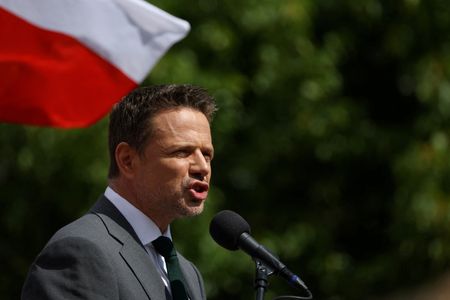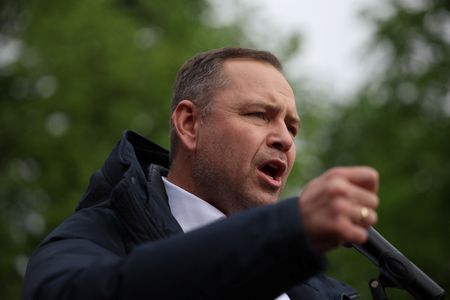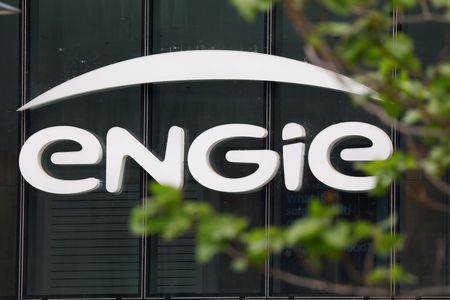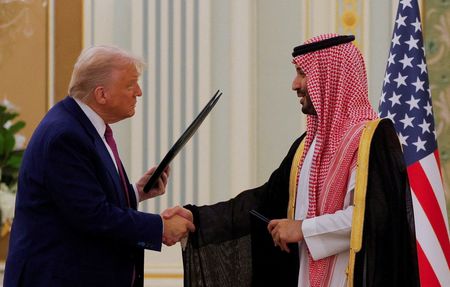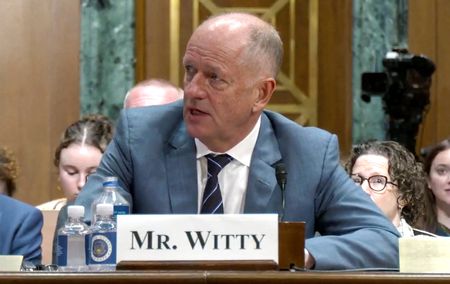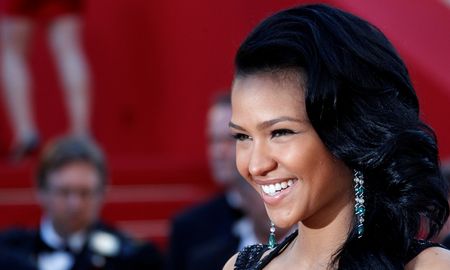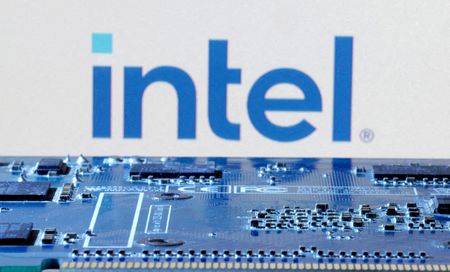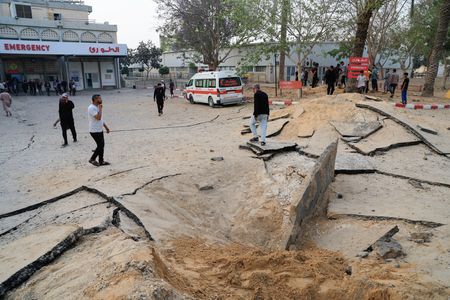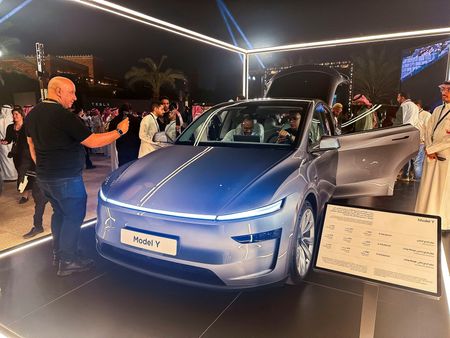By Alan Charlish and Justyna Pawlak
WARSAW (Reuters) – “Let’s shoot,” said Karol Nawrocki, before a heavy rock soundtrack kicked in and the camera switched to scenes of the presidential candidate backed by Poland’s main nationalist opposition party firing a variety of weapons.
The video shared on the historian and amateur boxer’s social media accounts was designed to contrast his tough-talking image with that of his more urbane opponent, Warsaw Mayor Rafal Trzaskowski from the liberal ruling Civic Coalition (KO), who had also taken part in voluntary military training.
The fact that both Nawrocki, who is backed by Law and Justice (PiS), and Trzaskowski felt compelled to show themselves preparing for a potential armed conflict underscored the importance of security for voters in a country that aims to more than double the size its army to half a million to ward off what it sees as the threat from Russia.
Trzaskowski is leading in opinion polls ahead of the presidential election first round on May 18, and is likely to face second-placed Nawrocki in a run-off vote on June 1.
Whether breaking a sweat in the boxing gym or getting his hands dirty helping a flood victim repair their house, Nawrocki has been at pains to cultivate the image of being both strong and down-to-earth.
Though he has faced a deluge of criticism from liberal media outlets, with his campaign being rocked by allegations that he acquired a second property from a elderly man in return for a promise of care which he did not provide, the strategy is working with some voters.
“He would be a better… leader of the army,” said Elzbieta Jozwiak, a 65-year-old retired teacher attending a Nawrocki rally in the eastern town of Garwolin. “Why? Because he is manly, strong, he fights off the attacks which are always targeting him.”
For others, Trzaskowski, who has previously served as a deputy foreign minister and member of the European parliament, would make a better leader in uncertain times due to his experience in international affairs.
“The guy is intelligent… educated, he has international contacts,” said engineer Monika Kwasniewska as she walked through a food hall in central Warsaw.
TRUMP MEETING
Nawrocki met U.S. President Donald Trump in the White House in early May, in a visit his supporters said showed that the candidate already had the ear of the leader of Poland’s most powerful military ally.
“Such a gesture from the president of the United States says a lot,” said PiS lawmaker Michal Wojcik. “Karol Nawrocki from the perspective of strengthening Polish-American relations is the best candidate.”
PiS has positioned itself as a vocal supporter of Trump, and rejects KO’s arguments that the European Union needs to play a bigger role in ensuring the bloc’s security.
Nawrocki told private broadcaster TV Republika in March that cooperation with the European Union should focus on economic matters and not stray into “areas of strategic, existential importance for the Polish state”.
“No to calling into question the North Atlantic alliance!” he added.
A source in the Trzaskowski campaign said that they had sought to emphasise their candidate’s experience and connections in Europe’s corridors of power, contrasting it with Nawrocki’s more low-profile role running Poland’s Institute of National Remembrance.
In contrast to his opponent, Trzaskowski advocates a stronger role for the EU in parallel with NATO.
“Today equally the United States and the European Union, the strong North Atlantic alliance, together ensure our security,” he told a rally in the central city of Lodz on Friday.
For Filip Pazderski, an analyst at the Stefan Batory Foundation in Warsaw, these differences could affect Poland’s approach to any potential peace talks involving Ukraine.
“For sure if Rafal Trzaskowski is president, then Poland will support the position of the European Union and will work on strengthening the European presence in these discussions,” he said.
“Whereas it may not be that important for Mr Nawrocki, because for Mr Nawrocki it would be more important to support the position of the USA in this situation, and the USA says that maybe the European Union is not that important to be at the table during these discussions.”
(Reporting by Alan Charlish, Justyna Pawlak, Kuba Stezycki and Kacper Pempel; Editing by Alex Richardson)

